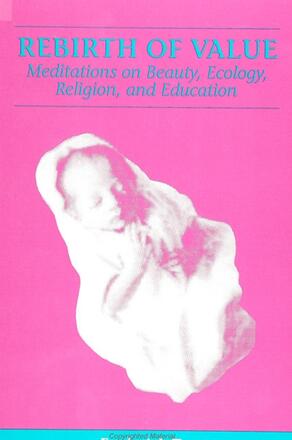
Rebirth of Value
Meditations on Beauty, Ecology, Religion, and Education
Alternative formats available from:
Description
Rebirth of Value takes as its starting-point the emerging scientific view of the universe as a free, unpredictable, self-ordering evolutionary process in which our own cultural history plays a leading part. It outlines some of the startling implications of this view for contemporary art, literature, theater, ecological ethics, human studies, religion, and education.
Turner goes beyond the current fashions of postmodern eclecticism, deconstructive critique, and self-consciousness about genre and ideology. Instead, he seeks out the creative and positive forces in contemporary culture that underlie the surface features, and identifies potent new themes and ideas that drive the trends. Among these are the recovery of a pan-cultural human nature; beauty as a real evolutionary tendency; the efficacy and reality of values in general; the reunion of the arts, sciences, and technology; a new science including the theory of non-linear and self-organizing systems, top-down as well as bottom-up causality, and a broader conception of causality in general.
Other themes and ideas discussed are a new environmental ethic in which humans can play a constructive and leading part in the evolution of nature; a conception of history as driven by values; cybernetic technology as a spiritual development; a new religious consciousness including a rich syncretism and a renewal of ritual; eternity as a more intense form of time; and the essential unity, coherence, and fertility of knowledge.
Frederick Turner is Founders Professor of Arts and Humanities at the University of Texas at Dallas.
Reviews
"The best thing about this book is its living, stimulating power to arouse new thoughts about old issues. It has a tremendously broad sweep; from the Big Bang to the overcoming of Hamlet's Oedipus Complex and its significance for higher education and the future of the world. It is an audacious book —highly personal, a bit quirky, but full of vim and appeal. It offers what the author would call many 'brain rewards'. " — Frederick Ferré, Editor, Research in Philosophy & Technology